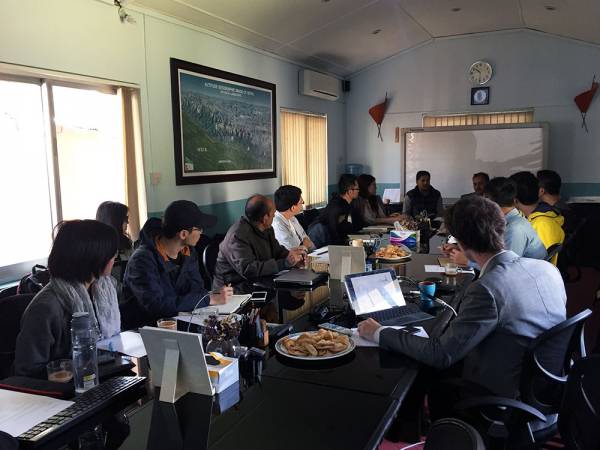Master of Landscape Architecture students from the University of Hong Kong travelled in early November from Kathmandu to Chitwan national park to study the impacts of large-scale infrastructure on the environmental conservation and development. Throughout September and October, the students researched three related areas: 1) Infrastructure investment trends and their relationship to political turmoil and environmental disaster; 2) Nepal's "failed" development and common misconceptions in development approaches, focusing on geophysical processes (e.g., erosion, landslides) and agricultural and other land management issues; and 3) Forest management, with a focus on Nepal's wide spectrum of community forestry. During the first week of November, students traveled Nepal's central north-south corridor from Kathmandu to Chitwan and met with major international NGOs, including WWF's linear infrastructure team and ICIMOD at their project demonstration grounds, local landscape academics and design offices, and community forest user groups. The students were led by Assistant Professor Ashley Scott Kelly of HKU's Division of Landscape Architecture.
The group would like to extend their greatest thanks to: Professor Bharat Sharma, Centre for Integrated Urban Development, Tribhuvan University; the Kerunga Community Forest User Group; Lok Bahadur Kuwar from Kasara Resort, Chitwan National Park; Neera Pradhan and her team at the International Centre for Integrated Mountain Development (ICIMOD) in Kathmandu; Priyanka Bista, Rajeev Goyal, and their entire team at KTK-Belt Studio; the Taragon Museum; Rahul Bajracharya for his great help in organizing; and the Worldwide Fund for Nature's Nepal and India offices.

Posted by: Ashley Scott Kelly (Design for Conservation)


